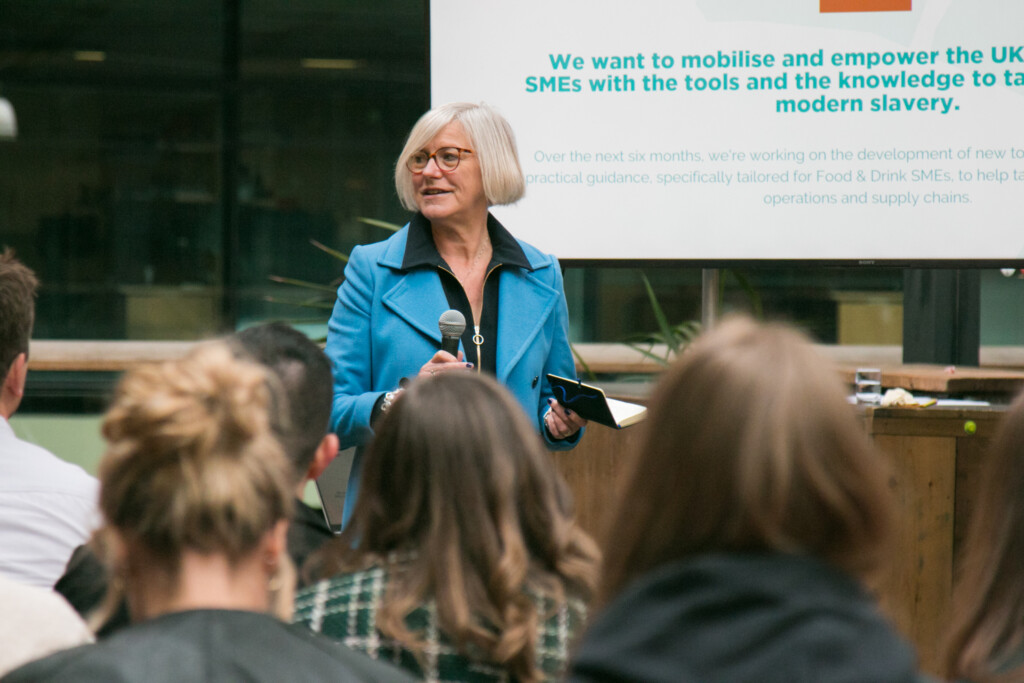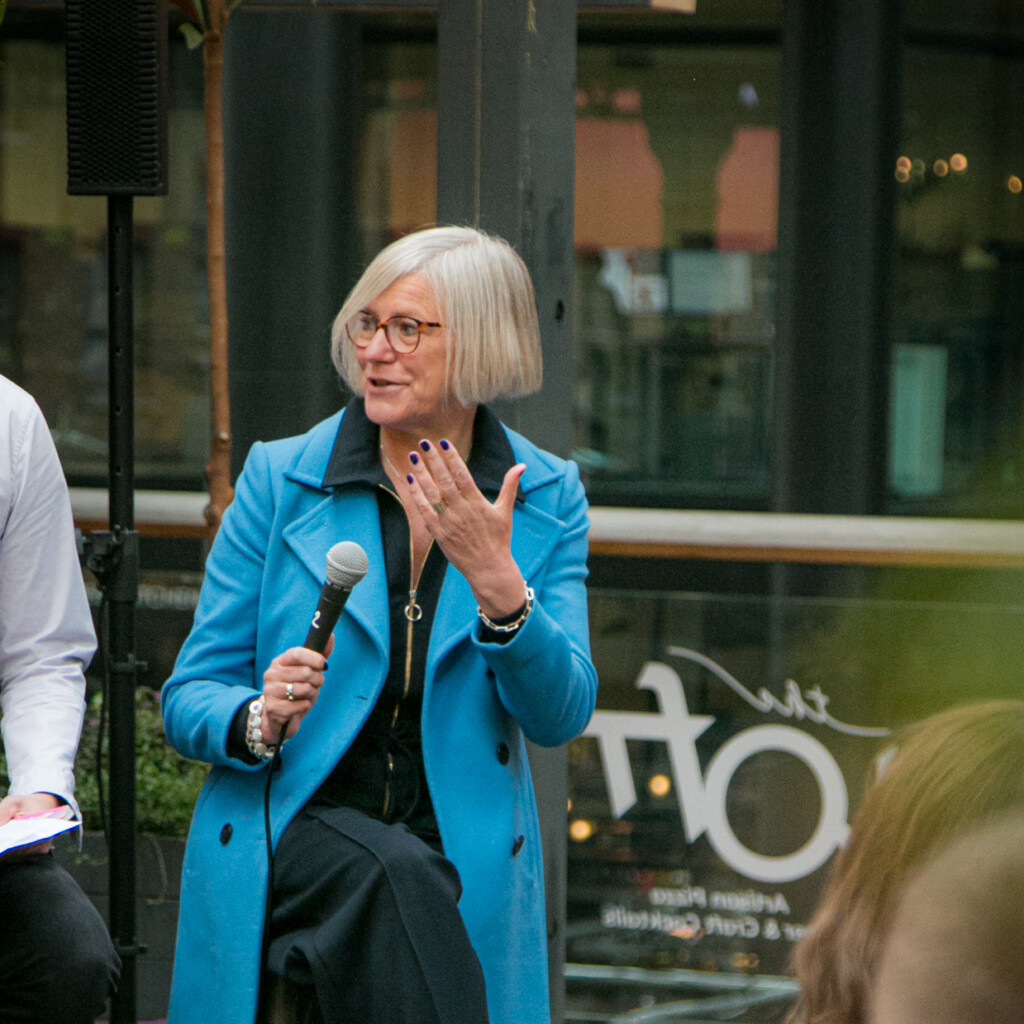Startups, challenger brands and SMEs have a key role to play in tackling modern slavery across the food industry. Consumers expect action. Will you join us?
A guest blog by Dame Sara Thornton DBE QPM, UK Independent Anti-Slavery Commissioner

Modern slavery is a hidden crime intersecting with the supply chains of legitimate businesses. All sectors carry the risk of exploitation and the food and agricultural industry is no exception: the risks can be found both on local farms and food processing plants, as well as in internationally sourced ingredients. Historically the International Labour Organisation has calculated that, at any time, 16 million people are being exploited in the private sector globally. This figure is thought to be a conservative estimate. Recent events such as the COVID-19 pandemic, the Russian invasion of Ukraine and climate change are destabilising already fragile communities and fueling economic migration and human trafficking.
Commercial practices and aggressive procurement models can also increase vulnerability in supply chains. I strongly believe that we, as consumers and businesses, share a responsibility to address these horrific crimes. In the UK, 99.9% of businesses are SMEs and for this reason, I have been keen to support initiatives that engage and empower smaller businesses with the knowledge and the tools to drive change across their own industries, leading the way from the ground up.
As part of this work, I have commissioned TRIBE Freedom Foundation on a new project, “Foodies Fighting Slavery: An Agenda for UK Food & Drink SMEs”, which is being delivered in collaboration with my office and STOP THE TRAFFIK to empower these businesses with the critical knowledge and practical resources to help tackle modern slavery in the food industry. To inform the development of new tools, we have engaged over 2,500 people in our in-depth consultations with UK Food & Drink SMEs, an employee survey and consumer polling. Our aim has been to understand the nature of modern slavery and the food industry, and the challenges which have previously prevented businesses from taking action.

The results are clear. The UK’s Food & Drink SMEs want to do more to tackle these issues with 95% of employees stating that ethical sourcing and fair supply chain working conditions are important issues for their employer. However, these businesses are currently ill-equipped and unsupported to take action. Awareness of the actual risks and what can be done to prevent modern slavery is low, 69% of employees surveyed don’t know where to find further information or resources to help their organisation tackle this issue. Furthermore, SMEs face internal barriers including time constraints, lack of organisational buy-in due to alternative priorities (e.g growth, profit and product development), limited leverage and a lack of supplier transparency.
Our goal is to help SMEs to overcome these challenges with practical tools and a collaborative approach.
For employees that are struggling to secure organisational buy-in, we have revealed a strong consumer case for brands to take proactive steps to address their modern slavery risks. Nationally representative polling shows 80% of UK consumers expect food and drink brands to prevent slavery in their supply chains. Modern slavery is an ever-present risk, so it is important that businesses prepare for the very real possibility that they could uncover it. Only then can such exploitation be addressed.
During our outreach to date, we have been encouraged to see a number of food and drinks businesses actively addressing the risks of labour exploitation and promoting fair treatment of workers across their operations and supply chains. Tony’s Chocolonely has demonstrated the importance of thorough due diligence and transparency which has enabled the company to tackle issues around child labour in the cocoa industry. Karma Drinks, LemonAid & ChariTea are championing fair wages and strengthening communities in the soft drinks market. Other businesses, including Holos, Manumit Coffee and Luminary Bakery are empowering the survivors of modern slavery with access to training and employment.
These initiatives are inspiring, but their power could be amplified if more businesses joined the agenda. Collaborative sharing and learning are important for driving meaningful change across the sector. By working together, we can build new business models that empower communities and safeguard the most vulnerable. Not only would this create a more appetising offer for consumers, investors, clients and employees, it would also lead to more resilient supply chains.
Together, we will go further and faster to end modern slavery. Will you join us?

Dame Sara Thornton at the Foodies Fighting Slavery Breakfast & Panel Event. Launching the project to an audience of consumers and SMEs across the food industry.


